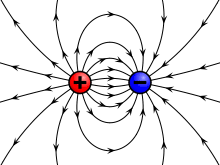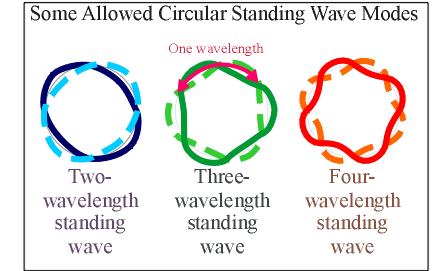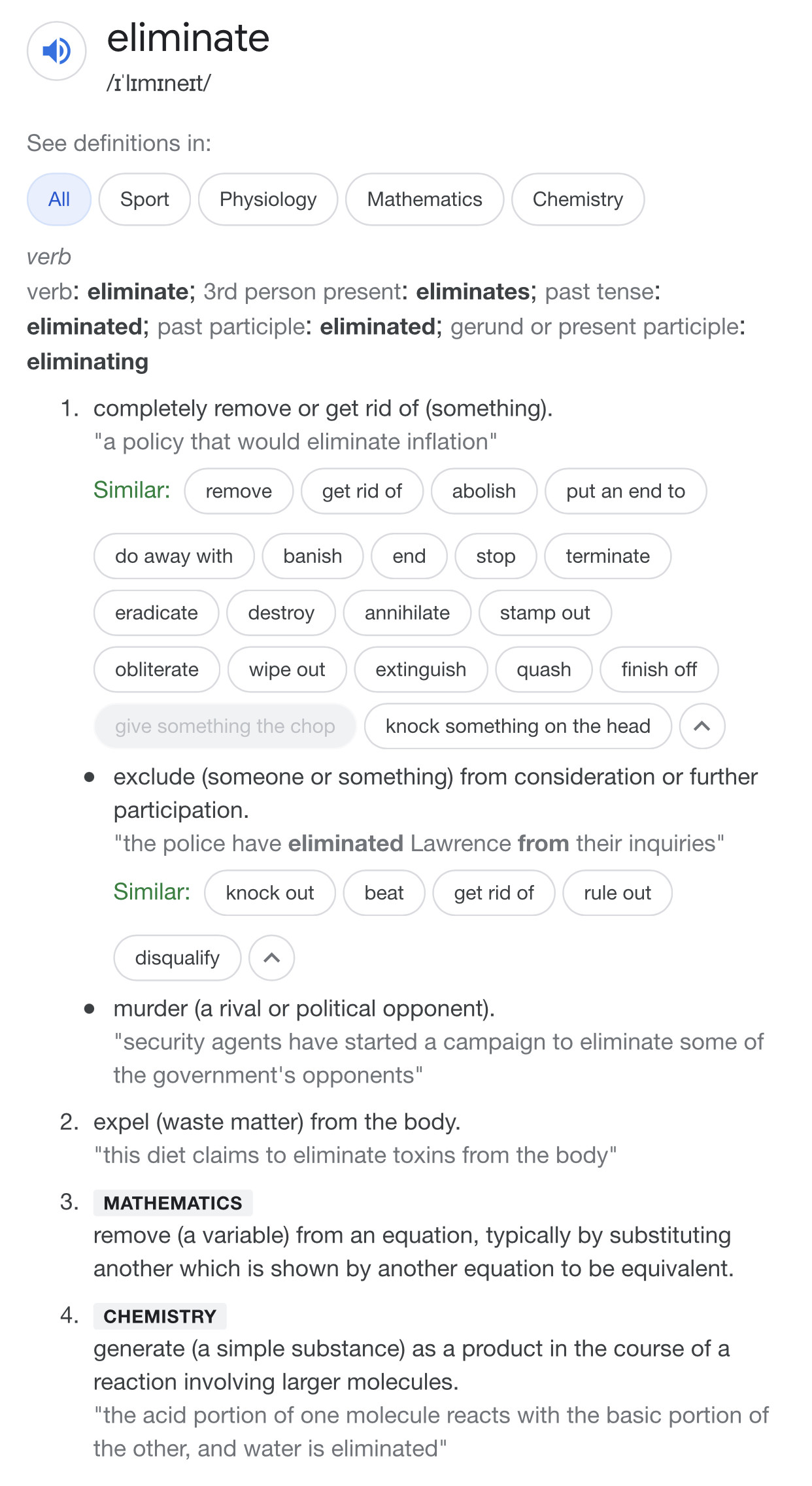So basically anyone can steal an election, cause a nanoparticle pandemic, start a war or even put everyone under mind control using vaccines and the justice sytem will just ignore the truth, cover up the facts and turn a blind eye.
G I U S T I F I C A Z I O N I S T I C H E
Borrowed from Late Latin iustificationem, justificationem < iustificatio, from iustifico, from Latin iustus.
Noun
giustificazione f (plural giustificazioni)
justification, explanation
proof
didn't realize this one 😯 ... timely?
the act of God whereby humankind is made or accounted just, or free from guilt or penalty of sin
Origen of Alexandria[a] (c. 184 – c. 253),[5] also known as Origen Adamantius,[b] was an early Christian scholar,[8] ascetic,[9] and theologian who was born and spent the first half of his career in Alexandria. He was a prolific writer who wrote roughly 2,000 treatises in multiple branches of theology, including textual criticism, biblical exegesis and hermeneutics, homiletics, and spirituality. He was one of the most influential figures in early Christian theology, apologetics, and asceticism.[9][10] He has been described as "the greatest genius the early church ever produced"
https://en.m.wikipedia.org/wiki/Origen
Demetrius condemned Origen for insubordination and accused him of having castrated himself (though it has been proposed that this was a result of misunderstanding Origen’s mystical reference to his own celibacy [1]) and of having taught that even Satan would eventually attain salvation, an accusation which Origen vehemently denied
Demetrius also alleged that Origen had taught an extreme form of apokatastasis, which held that all beings, including even Satan himself, would eventually attain salvation.[12] This allegation probably arose from a misunderstanding of Origen's argument during a debate with the Valentinian Gnostic teacher Candidus.[12] Candidus had argued in favor of predestination by declaring that the Devil was beyond salvation.[12] Origen had responded by arguing that, if the Devil is destined for eternal damnation, it was on account of his actions, which were the result of his own free will.[74] Therefore, Origen had declared that Satan was only morally reprobate, not absolutely reprobate.[74]
Demetrius died in 232, less than a year after Origen's departure from Alexandria.[72] The accusations against Origen faded with the death of Demetrius,[75] but they did not disappear entirely[76] and they continued to haunt him for the rest of his career.[76] Origen defended himself in his Letter to Friends in Alexandria,[12] in which he vehemently denied that he had ever taught that the Devil would attain salvation[12][13][77] and insisted that the very notion of the Devil attaining salvation was simply ludicrous.[12]
Etymology: from Latin deludere, "to mock, to deceive"; from de-, "down, to one's detriment" + ludere, "to play".
lud
Alternative form of loude (“loud”)
lud
loud, noisy
boisterous
ic
/ɪk/
suffix
suffix: -ic
1.
forming adjectives such as Islamic, terrific.
2.
forming nouns such as lyric, mechanic.
3.
denoting a particular form or instance of a noun ending in -ics.
"aesthetic"
4.
CHEMISTRY
denoting an element in a higher valency.
"ferric"
Origin
from French -ique, Latin -icus, or Greek -ikos .
Rous f (plural Rousen)
rose
From Middle English rousen, from Anglo-Norman reuser, ruser, originally used in English of hawks shaking the feathers of the body, from Latin recusare, by loss of the medial 'c.' Related to Provencal reusar.
Figurative meaning "to stir up, provoke to activity" is from 1580s; that of "awaken" is first recorded 1590s.
Alternative forms
rouze (obsolete)
Noun
rouse (plural rouses)
An arousal.
often the rouse.
Verb
rouse (third-person singular simple present rouses, present participle rousing, simple past and past participle roused)
To wake (someone) or be awoken from sleep, or from apathy.
To cause, stir up, excite (a feeling, thought, etc.).
to rouse the faculties, passions, or emotions
To provoke (someone) to action or anger.
To cause to start from a covert or lurking place.
to rouse a deer or other animal of the chase
(nautical) To pull by main strength; to haul.
(obsolete) To raise; to make erect.
(slang, when followed by "on") To tell off; to criticise.
He roused on her for being late yet again.
Synonyms
(to wake someone from sleep): bring round, roust, wake up; see also Thesaurus:awaken
(to be awoken from sleep): arise, get up, wake up; see also Thesaurus:wake
rousingly (comparative more rousingly, superlative most rousingly)
In a rousing manner.
Origin & history
From Proto-Celtic *anderā (compare Welsh anner, Cornish annor, Breton annoar, all ‘heifer’).
Pronunciation
IPA: /ˈan͈ʲdʲer/
Noun
ainder (fem.)
married woman, nonvirgin
virgin, maiden
Descendants
Irish: ainnir
From Old Irish ainder ("non-virgin, married woman; virgin, maiden"), from Proto-Celtic *anderā.
Noun
ainnir (fem.) (genitive singular ainnire, plural ainnirean)
maiden, virgin
nymph
marriageable woman
A MARRIAGEABLE WOMAN
eligible
/ˈɛlɪdʒɪb(ə)l/
adjective: eligible
having the right to do or obtain something; satisfying the appropriate conditions.
entitled
permitted
allowed
qualified
acceptable
suitable
appropriate
fit
fitting
worthy
competent
Opposite:
ineligible
1600, "capability of being governed or controlled," from manage + -able.
/ˌmæn.ɪ.dʒə.ˈbɪl.ə.t̬i/ the quality of being easy or possible to deal with: A shorter style would give your hair more manageability.
What do you mean by interchangeability?
(of two things) capable of being put or used in the place of each other: interchangeable symbols. (of one thing) capable of replacing or changing places with something else: an interchangeable part.
vice versa
/ˌvʌɪs ˈvəːsə,vʌɪsə ˈvəːsə/
adverb: vice versa
with the main items in the preceding statement the other way round.
conversely
inversely
the other way round
contrariwise
oppositely
in reverse
reciprocally
late Middle English: from Old French advers, from Latin adversus ‘against, opposite’, past participle of advertere, from ad- ‘to’ + vertere ‘to turn’. Compare with averse.
adversary
ˈadvəs(ə)ri
noun
one's opponent in a contest, conflict, or dispute.
opponent
rival
enemy
foe
nemesis
antagonist
combatant
challenger
contender
competitor
opposer
fellow contestant
opposition
competition
corrival
adjective: adversary
/ˈadvəs(ə)ri,adˈvəːsəri/
another term for adversarial.
Middle English: from Old French adversarie, from Latin adversarius ‘opposed, opponent’, from adversus (see adverse).
a group of lines that form a unit in a poem or song; a stanza.
plural noun: verses
"the second verse"
verb: verse; verses; versed; versed; v
versing
speak in or compose verse; versify.
"he began to verse extemporaneously in her ear"
Origin
Old English fers, from Latin versus ‘a turn of the plough, a furrow, a line of writing’, from vertere ‘to turn’; reinforced in Middle English by Old French vers, from Latin versus .
A positive correlation is a relationship between two variables in which both variables move in the same direction. ... A negative correlation is a relationship between two variables in which an increase in one variable is associated with a decrease in the other.
Dipole, literally, means "two poles," two electrical charges, one negative and one positive. Dipoles are common in atoms whenever electrons (-) are unevenly distributed around nuclei (+), and in molecules whenever electrons are unevenly shared between two atoms in a covalent bond.
diabolōs
accusative plural of diabolus
“There's a double meaning to everything,”
👉🏻❤️👈🏻
As scientists tried to explain the physics of atoms, they soon realized that they could no longer treat small objects (such as electrons) as particles. Electrons were discovered to have wave-like characteristics as well. This discovery allowed great advances in the area of physics called quantum mechanics – the study of physics on the very, very small scale.
One such advancement involves the energy levels of electrons in an atom. Experiments showed that electrons in atoms could only have certain quantized energies. This observation was explained by imagining the electron as a wave forming circular standing waves about the nucleus. For a standing wave to form in a circle, an integral number of wavelengths must "fit" within the circumference. This means that only some discrete wavelengths are allowed to form in a circle of a given radius (some examples of allowed standing wave modes are shown above). Because the electron energies depend on their wavelengths and the wavelengths are discrete, the allowed energies must also be discrete.
To illustrate standing waves in a circle, the video above shows an oscillating metal hoop. The oscillations set up standing waves in the hoop. However, Danning Bloom and Dan W. Bloom show in their article (Vibrating Wire Loop and the Bohr Model, The Physics Teacher, Vol. 41, page 292, May 2003) that the allowed standing wave modes are very different from the electron’s modes. Put simply, the atom allows modes with an even number of half-wavelengths, while the wire allows only modes with an odd number of half-wavelengths. Basically, this has to do with how the clamp that connects the hoop to the oscillator constrains the hoop. While the hoop doesn’t show the right standing wave patterns, it is useful to show that standing waves can indeed form in a loop.
loom
a vague and often exaggerated first appearance of an object seen in darkness or fog, especially at sea.
"the loom of the land"
the dim reflection by cloud or haze of a light which is not directly visible, e.g. from a lighthouse over the horizon.
Origin
mid 16th century: probably from Low German or Dutch; compare with East Frisian lōmen ‘move slowly’, Middle High German lüemen ‘be weary’.
illuminate
/ɪˈl(j)uːmɪneɪt/
verb: illuminate; 3rd person present: illuminates; past tense: illuminated; past participle: illuminated; gerund or present participle: illuminating
1.
make (something) visible or bright by shining light on it; light up.
"a flash of lightning illuminated the house"
unjustifiable
/ʌnˈdʒʌstɪfʌɪəb(ə)l/
adjective
not able to be shown to be right or reasonable.
"an unjustifiable restriction on their freedom"
unfair
/ʌnˈfɛː/
adjective
not based on or behaving according to the principles of equality and justice.
"at times like these the legal system appears inhuman and unfair"
From Middle English uneven, from Old English unefen (“unequal, unlike, dissimilar, diverse, irregular”), equivalent to un- + even. Cognate with Dutch oneven (“unequal, uneven, odd”), German uneben (“uneven, rough, irregular, bumpy”).
Pronunciation
IPA(key): /ʌnˈivən/
Rhymes: -iːvən
Adjective
uneven (comparative more uneven, superlative most uneven)
Not even
Not level or smooth
Not uniform
Varying in quality
(mathematics, rare) Odd
Antonym: even
From Middle English even, from Old English efen, efn, emn (“even, equal, like, level, just, impartial, true”), from Proto-West Germanic *ebn, from Proto-Germanic *ebnaz (“flat, level, even; equal, straight”), from Proto-Indo-European *(h₁)em-no- (“equal, straight; flat, level, even”).
Cognate with West Frisian even (“even”), Low German even (“even”), Dutch even (“even, equal, same”), effen, German eben (“even, flat, level”), Danish jævn (“even, flat, smooth”), Swedish jämn (“even, level, smooth”), Icelandic jafn, jamn (“even, equal”), Old Cornish eun (“equal, right”) (attested in Vocabularium Cornicum eun-hinsic (“iustus, i. e., just”)), Old Breton eun (“equal, right”) (attested in Eutychius Glossary eunt (“aequus, i. e., equal”)), Middle Breton effn, Breton eeun, Sanskrit अम्नस् (amnás, “(adverb) just, just now; at once”).
"we actually got justice for a change"
interchangeably
/ˌɪntəˈtʃeɪn(d)ʒəbli/
adverb
in a way that can be exchanged.
exchangeable (not comparable)
Able to be exchanged.
hanged
(law) simple past tense and past participle of hang (only when referring to the method of execution)
The state of being accomplished.
The mission's successful execution lifted the troops' morale.
accomplish
/əˈkʌmplɪʃ,əˈkɒmplɪʃ/
verb
verb: accomplish; 3rd person present: accomplishes; past tense: accomplished; past participle: accomplished; gerund or present participle: accomplishing
achieve or complete successfully.
accomplice
/əˈkʌmplɪs,əˈkɒmplɪs/
noun
noun: accomplice; plural noun: accomplices
First attested in the 1580s. From Middle English accomplice, from a complice, from Old French complice (“confederate”), from Latin complicare (“fold together”).
The article a became part of the word, through the influence of the word accomplish.
Old English trīewth, trēowth ‘faithfulness, constancy’ (see true).
Faithfulness is the concept of unfailingly remaining loyal to someone or something, and putting that loyalty into consistent practice regardless of extenuating circumstances. It may be exhibited by a husband or wife who, in a sexually exclusive marriage, does not engage in sexual relationships outside of the marriage. It can also mean keeping one's promises no matter the prevailing circumstances, such as God's covenant to love his people. Literally, it is the state of being full of faith in the sense of steady devotion to a person, thing or concept.





